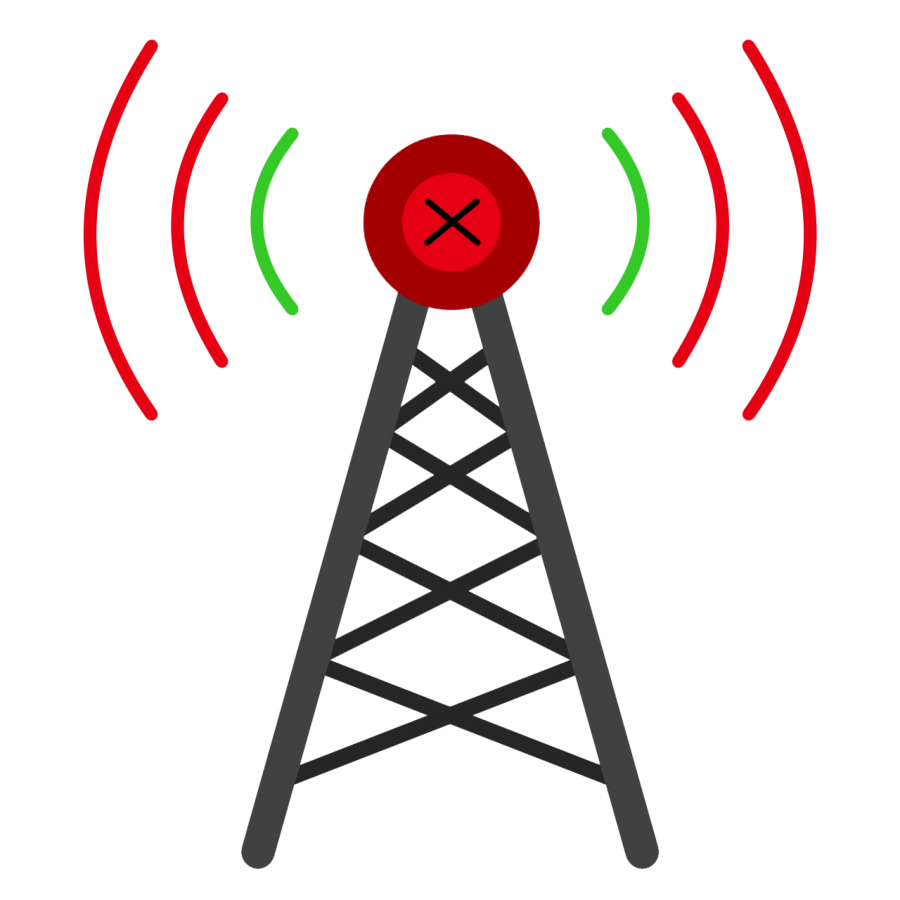CWU’s Wi-Fi is Loading… Please Wait
January 20, 2021
Nothing in college is more frustrating than having a laggy Zoom call, or even worse, being kicked out of a class because your Wi-Fi suddenly disappeared. In my short time as a student here at CWU, one thing has been blatantly apparent.
The school Wi-Fi is in no way shape or form stable or fast enough to sustain all of the students that are on campus.
For example, I have an Xbox One console, and as many may know it needs a stable wireless connection to load pretty much everything it could hope to provide. When I first moved in, I was very surprised to find that the public wireless network provided for students wasn’t secure, or strong enough to sustain a connection.
Then, after many inquiries, I discovered there was a network that was supposed to be faster if you registered for it with your device. However, I was very disappointed to find that it still wasn’t stable or strong enough.
Eventually, I figured out that if I used an ethernet port, then it would work most of the time. I got lucky enough to have an ethernet port in my room, otherwise I wouldn’t have even been able to use my console.
I have figured out when good times are to get online on my computer, but I know that not everyone has the freedom to get on whenever they want. I know that the Wi-Fi gets incredibly slow and spotty during the afternoon, when the majority of the students have class and are using the bandwidth.
The really unfortunate part is the fact that campus isn’t even at full capacity right now, so it is only going to get worse. My roommate has gotten kicked from multiple zoom meetings just this quarter, and she also very rarely is able to turn on her video so that her professors can actually see her. I can only imagine what it must be like for teachers that are on campus trying to post and host lectures.
You may be wondering why I am surprised at the statements that I have just mentioned. Well, when you’re paying $15,076 just for tuition and living expenses, you would be surprised too. That price doesn’t even include mandatory fees, and the one of the required meal plans that comes when you live on campus as I am.
That price is after a full three quarters, with 18 credits per quarter. The end price will vary slightly person to person depending on your meal plan and where you decide to live, but I as a freshman am paying $6,474 for tuition every quarter, and $8,602 to live on campus for 30 weeks of classes. When you’re giving an institution that much money, you would think that they would have good, if not great, internet.
According to SecureEdge Networks, there are several different things that could be contributing to this problem. One could be that the design of the network is outdated, and when they started expanding the campus with new buildings they didn’t redo everything.
Another could be that the sheer amount of users is bogging down the signal and using all of the bandwidth, and they haven’t added any WiFi boosters to try to help solve the issue. I am making assumptions, since these are the most common reasons that large facilities or companies have Wi-Fi that struggles to meet the requirements.
On SecureEdge Networks, it is provided that “The type, amount and location of your access points can have disastrous effects for your mobile devices and how well they perform.
Deploy too many APs (access points) and you can cause too much interference, too few and you don’t have enough coverage.”
Wi-Fi boosters are generally under $50 for the bare minimum, and I find it very hard to believe that what I am paying to live on campus won’t cover at least one booster. That route wouldn’t be very hard, it would just depend on the range of the boosters that they purchase.
Another option would be to invest in MU-MIMO (Multiple-user, multiple input, multiple output) access points, which would mean that the Wi-Fi signal would be directed toward a specific device, instead of spread out in a general area. The price for these depends on who CWU goes through for the internet.
The resources for the University are in no way limited, so there is no reason for students to be missing out on class, and people who live in on campus apartments having to purchase their own Wi-Fi. CWU has the resources, the only question is whether they know about the problem, and if they have the desire to fix it. Once this problem is fixed, online school won’t be nearly as stressful.




At last • Jan 21, 2021 at 11:26 am
Thank you for posting this! My household has had issues for years. Almost everyone is quick to take your money but no improvements. Im off campus and have to pay a whopping $70/mo for internet that is weak, lagging, and intermittent. Its been a lot better since the pandemic, but when everyone is on their school sites at the same time in our home, the same issues arise. We can’t even stream a movie sometimes. It appears nobody wants to make the improvements or they just don’t know how to. Its very sad and disappointing on so many levels.
Becka • Jan 20, 2021 at 9:12 pm
You need to look more into what fees you are paying for as well as what each department budget is. Not every department is getting the same amount of money, meaning that the department that takes care of the WiFi can’t afford to pay for better internet without making cuts to other things.